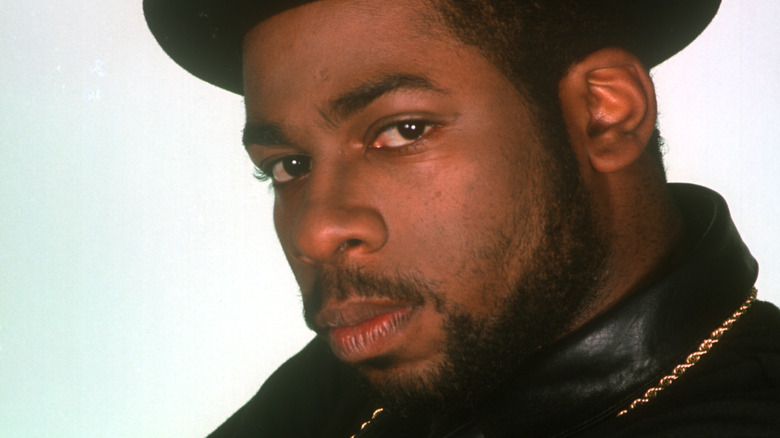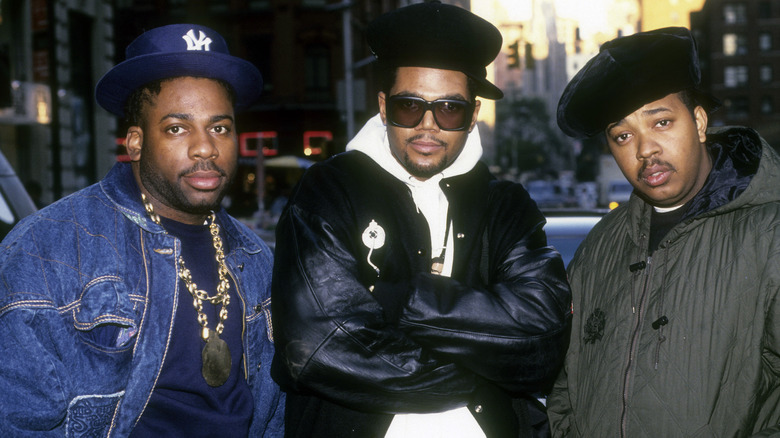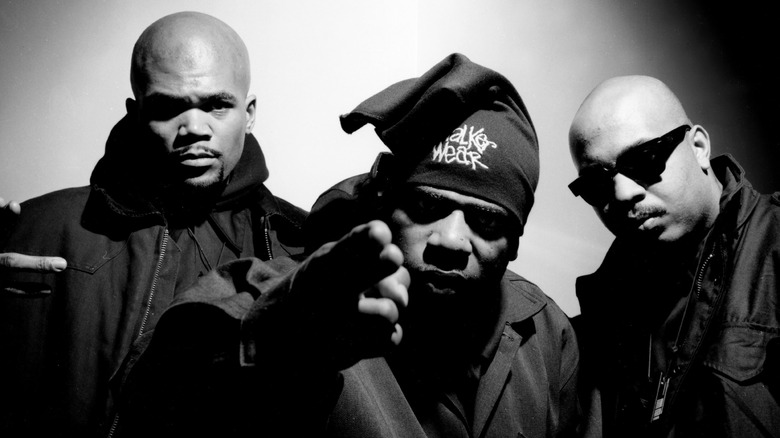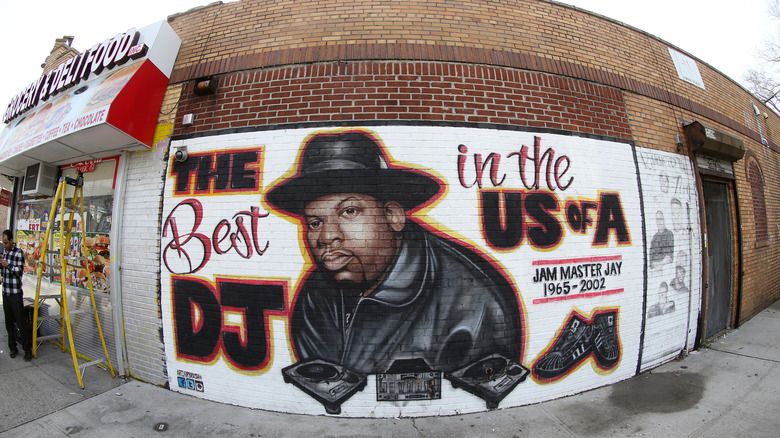What You Don't Know About Jam Master Jay's Murder
Jam Master Jay, the legendary hip-hop DJ, greeted his killer with a smile and a hand slap. It was the evening of October 30, 2002, and they were in Jay's Queens, New York recording studio. He had made his name as one-third of the groundbreaking group Run-D.M.C. in the '80s but had started his own record label. Jay greeted his unexpected visitor, but his expression suddenly changed as his godson, Karl Jordan Jr., pulled out a gun and fired twice, hitting him behind the left ear and killing him instantly, according to federal prosecutors. The gun was so close to Jay that he had powder burns on his shirt. He was only 37 at the time of his murder.
The second shot hit Jay's friend Uriel "Tony" Rincon in the leg. Meanwhile, one of the DJ's oldest friends, Ronald "Tinard" Washington, held a gun on Lydia High, Jay's business manager, preventing her from leaving. Both Rincon and High had been too scared to admit to police or prosecutors who the killers were. More than two decades later, a federal jury in Brooklyn found Jordan and Washington guilty of Jay's murder. As of February 2024, they were facing sentences of 20 years to life for their convictions. The motive, prosecutors said, was revenge for Jay cutting the men out of a lucrative drug deal.
A changing industry
DJ Jam Master Jay, born Jason William Mizell on January 21, 1965, always knew he wanted to be involved with music beginning when he was a child. He sang and played drums before discovering his talent on the turntables that would catapult him to fame. By 14, Jam Master Jay was already making a name for himself playing massive outdoor parties in Queens. Soon, with rappers Joseph Simmons AKA Run, and Darryl McDaniels, known as Devastating Mic Controller (D.M.C.), they would help change the course of popular music with their innovative sound. Their producer, Russell Simons, dubbed them Run-D.M.C., even though this wasn't the name the group originally wanted to use.
Run-D.M.C. would become the first hip-hop group to have an album go platinum. Chuck D wrote in Rolling Stone that Run-DMC's "Raising Hell," the group's third release, "was the first true rap album, a complete work of art as opposed to a collection of singles or a novelty item ... Everyone in hip-hop today can be traced back to Run-DMC. They had a whole new energy that revolutionized hip-hop."
By the early 2000s, the hip-hop scene had changed and although Jay had started his own label that counted the young rapper 50 Cent on its roster, money was tight. So tight that Jay turned to acting as a middleman pushing cocaine across the Eastern seaboard to help pay the bills, per federal prosecutors. It was the drug trade rather than the volatile rap scene of the period, which saw the East Coast-West Coast rivalry that included the rappers Tupac and Biggie's notorious beef.
A drug dispute turned deadly
Not long before Karl Jordan Jr. and Ronald Washington masterminded Jam Master Jay's murder, drug suppliers in California had fronted Jay 10 kilograms of cocaine that he planned to distribute in Maryland and Washington, D.C., in a deal worth around $200,000, according to federal prosecutors. Jay cut out Jordan and Washington and they eventually took their revenge on the DJ.
On the evening of the killing, Jay and Tony Rincon were playing video games at Jay's recording studio, 24/7, when Lydia High arrived to go over paperwork with the DJ. Jay set a pistol on the couch next to him, which scared High, who asked him to move it while they talked. Soon other friends show up, including Jay Bryant, who allegedly snuck off and opened a fire escape door allowing the killers to enter the studio unseen, per prosecutors (Bryant is scheduled for trial in January 2026, per The New York Times.). Following the murder, the killers threatened Rincon and High, who then refused to tell police who was behind Jam Master Jay's murder.
It took 20 years to convict Jam Master Jay's killers
Jam Master Jay's murder went into the cold case file until NYPD detectives renewed their efforts in 2016, and eventually collected enough evidence to arrest Karl Jordan Jr. and Ronald Washington. "A cold case is never a forgotten case," NYPD Commissioner Edward A. Caban said in a press release. "In the decades since Mr. Mizell was brutally murdered, the greatest detectives in the world followed every lead until arrests could be made, and a solid case could be brought to our partners in the office of the U.S. Attorney for the Eastern District of New York."
The U.S. Department of Justice handled the case that took place in federal court in Brooklyn. The month-long trial included more than 30 prosecution witnesses. The defense attorneys in the case attacked the witnesses' credibility and their memories more than 20 years after the events took place.
Following the verdicts Washington denied any involvement, shouting, "Two innocent people!" in court (via The New York Times). At the time of this writing, the convicted killers were awaiting a sentencing date. Jordan is also facing additional charges for cocaine distribution. Jay's murder happened not far from Hollis, the neighborhood in Queens that saw the birth of Run-D.M.C. and the group's rise to stardom. Run-D.M.C.'s Jam Master Jay is buried in Westchester County, just north of New York City.



